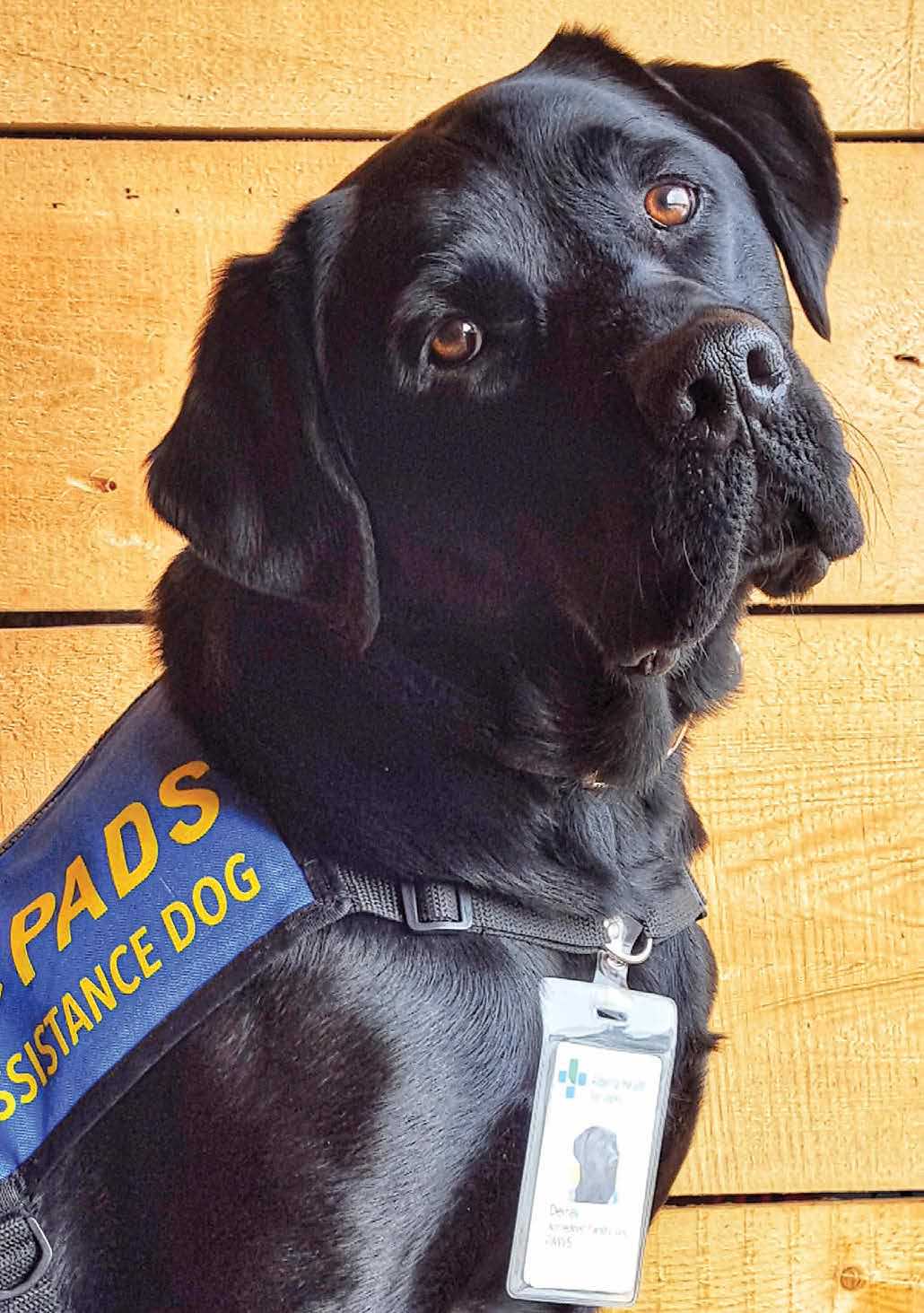
FOR NEARLY NINE YEARS, JENNIFER HALLIday did not get a good night’s rest. Instead of sleeping in bed with her husband, she spent the wee hours comforting her son, Ciaran, as he tossed, turned and stimmed — self-stimulatory behaviour found in children with autism spectrum disorder. “He’d take my hand and rub his fingernails up against mine to make a click,” she says. “He’d do that all night.” He couldn’t sleep in his bed alone because he would wake up and disturb the entire household, including his younger brother. And because Ciaran wasn’t getting much rest, he’d fall asleep at school and act out in frustration — meaning his parents had to give him the bulk of their time and energy.
But all of that changed in the fall of 2016, when Ciaran was nine. The Halliday family welcomed Dana, a Labernese service dog from Quebec’s Mira Foundation, into their home. Now, Dana lies at the foot of Ciaran’s bed every night and he can take her paw and click his nails against hers if he needs to calm himself. “Even if he’s tossing and turning and kicks her, she’ll just move on to the floor, but she’ll never leave the room,” Halliday says. Ciaran started sleeping better almost immediately, which means that the rest of the family is sleeping, too. “I had no idea how little sleep I was getting,” she says. “Or how amazing you could feel after getting a few months of good rest.”
この記事は Best Health の August/September 2018 版に掲載されています。
7 日間の Magzter GOLD 無料トライアルを開始して、何千もの厳選されたプレミアム ストーリー、9,000 以上の雑誌や新聞にアクセスしてください。
すでに購読者です ? サインイン
この記事は Best Health の August/September 2018 版に掲載されています。
7 日間の Magzter GOLD 無料トライアルを開始して、何千もの厳選されたプレミアム ストーリー、9,000 以上の雑誌や新聞にアクセスしてください。
すでに購読者です? サインイン